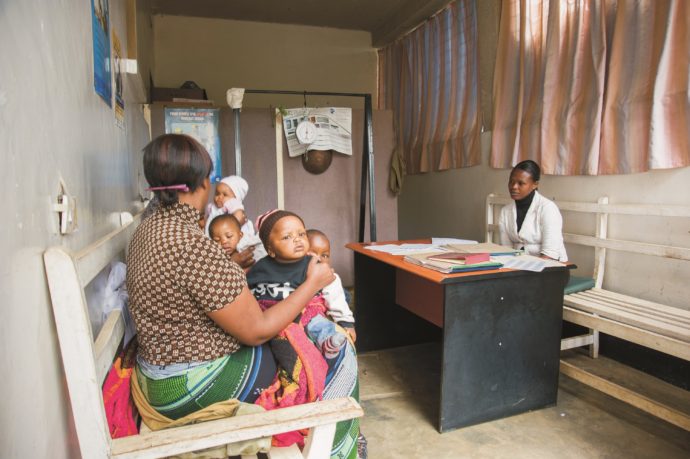Scaling data quality and data use interventions at the NetHope Summit
By Oswald Luoga, Senior Implementation Specialist, BID Initiative Tanzania
Nov 2, 2017
Posted in People, Policies & Practices, Practices, Products

Photo: Bill & Melinda Gates Foundation/Riccardo Gangale. Clinical officer Caroline Agade advises mothers on vaccinating their children at the Green Hope dispensary in Arusha, Tanzania.
Last week, the BID Initiative traveled to Vancouver, Canada to present at the annual NetHope Global Summit. Between October 23-27, more than 300 representatives from across the global health sector, leading technology companies, and funding organizations gathered to address a common goal: the power and promise of technology to address the problems and potential of humanity.
This year’s theme was “Digital Strategies for Impact: Step up!” – a topic the BID Initiative knows well from the ongoing introduction of data quality and data use interventions in Tanzania and Zambia. In Tanzania more than 611 facilities are now implementing these new tools and approaches, and 168,808 children have been entered in the country’s electronic immunization registry (EIR). In Zambia, 5,272 children have been entered into the registry and 160 facilities are implementing interventions.
Last Thursday, I joined Emily Carnahan, Monitoring and Evaluation Lead for BID to discuss our progress and lessons from either country. From its earliest days, the BID Initiative has been committed to contributing to the body of knowledge that informs future investments. As we’ve introduced interventions with the Ministries of Health in Tanzania and Zambia, our visibility into data quality and data use has improved and NetHope was an opportunity to share these learnings. For instance, we’ve evolved our rollout strategy. District Data Use Mentors (DDUMs) are now leading intervention implementation, as opposed to BID staff. Instead of being perceived as an “outside” initiative, health workers see their peers using data quality and data use interventions, and feel greater ownership over the system. The new strategy has saved significant time and money. Costs have decreased between 10 to 65 percent in districts across Arusha, Tanzania, where DDUMs were implemented. In Meru DC, for instance, the cost of rollout dropped by 45 percent, after rollout strategies were shifted to center the role of the government.
Last week’s NetHope Summit was also an opportunity for my colleagues and I to learn from others in the field. Data security will be increasingly important to countries like Tanzania and Zambia as they scale up interventions and explore how the EIR may interoperate with other systems and databases. To reap the promise of digital health information to achieve better health outcomes, smarter spending, and healthier people, health workers and patients must trust that an individual’s health information is private and secure.
You can view our full presentation here.
